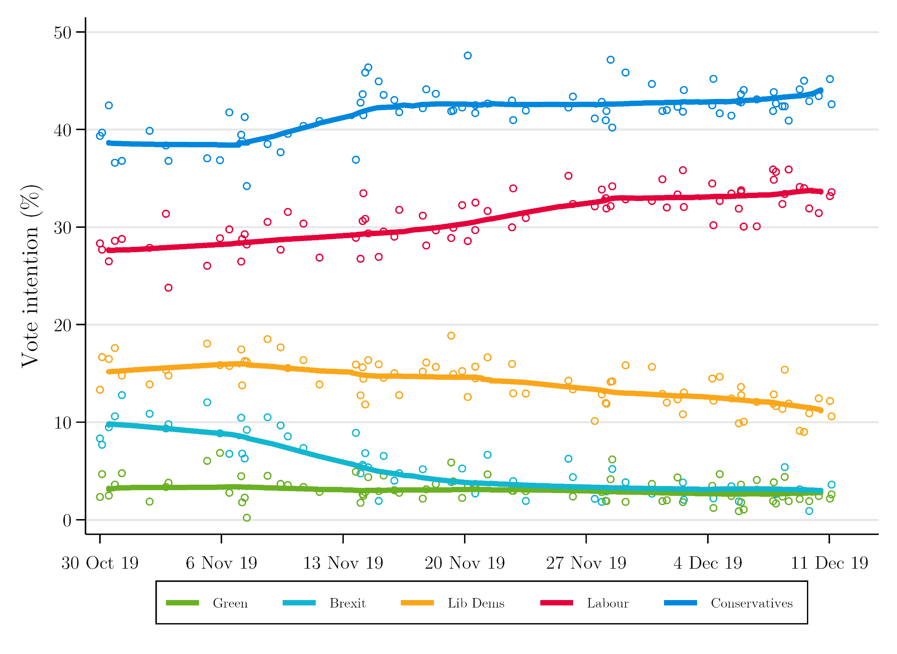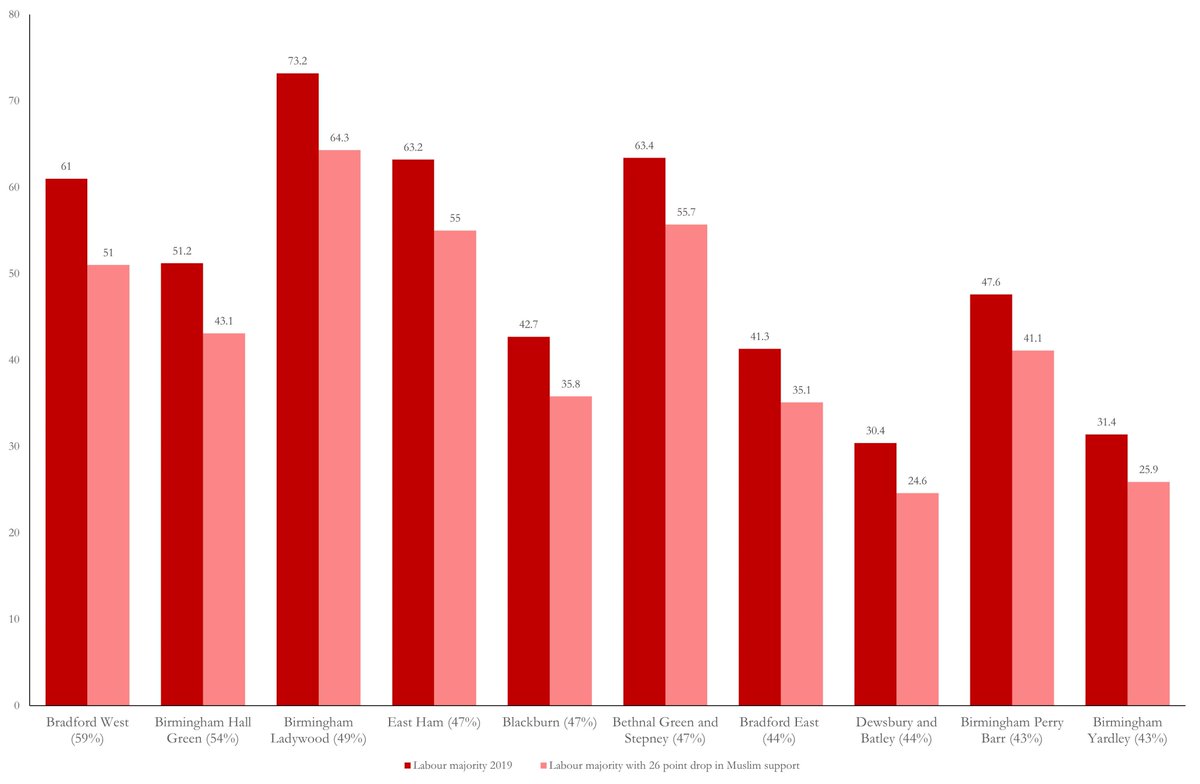A quick thread with some of the slides/key messages from my presentation at the launch of The British General Election of 2019, in particular for those unable to see the presentation live due to technical glitches
https://twitter.com/anandMenon1/status/1463653946308841473
The context of the election: both parties collapsed in the polls in the wake of Theresa May's repeated failures in the Commons in Spring 2019; frustrated Leave voters defected to Brexit Party, frustrated Remainers to Lib Dems and Greens 

The conclusion Conservative MPs and members came to was that of Prince Falconeri in Di Lampedusa's classic "The Leopard" - "If we want things to stay as they are [i.e. Con govt leaving the EU], things will have to change." @briancartoon here illustrates the political maths 

The Johnson effect was immediately evident in the polls - he scored 15-20 points higher than May had been on "best PM" (see attached), and Con poll numbers rose steadily as Leave voters returned 

Labour also faced a major polling crunch, but a change of ldr was not on the cards - Corbyn's office opposed it, and his opponents had no way to force it . But the Labour problem was also structural - their activists and voters leaned Remain, but the marginals leaned Leave
As a result, Labour resisted pressure from 2018 onwards to focus on a 2nd ref, instead trying to offer a Brexit policy which appealed to both Remainers and Leavers. This compromise approach became problematic, as a narrative of Corbyn ignoring will of supporters took hold 

(that last cartoon from @BJennings90 )
Labour sought to offset a weak Brexit offer by shifting the focus to domestic policy, an approach which worked in 2017. The manifesto of 2019 up the ante further on the radical 2017 proposals, but fragmented comms failed to assuage voters concerned about cost and credibility 

(cartoon from @mortenmorland )
The Conservatives sought to learn from the errors of a traumatic 2017 campaign. A "safety first" manifesto offered big spending pledges in vulnerable areas like health, and avoided controversy, so the campaign could focus relentlessly on three words: "Get Brexit Done" 

Labour did have some success raising the salience of domestic issues, with health in particular rising up the agenda during the campaign. But Brexit remained the dominant issue... 

Labour had less success when it came to leadership. Johnson was not a popular leader in 2019 - his ratings were consistently below Theresa May's in the 2017 campaign - but he faced a much diminished Corbyn, whose ratings were dire throughout. 

The campaign was not static - instead both large parties gained ground at similar rates from smaller parties - Cons from Brexit Party, Labour from Lib Dems & Greens. The parallel rises meant no major shift in the state of the contest, with Cons comfortably ahead throughout 

The one wild card on election night was the Brexit Party - by splitting the Leave vote in Labour Leave marginals, they may have saved 25 Labour MPs (including figures such as Ed Miliband and Yvette Cooper) and prevented a Johnson landslide majority of 130 plus 

A final note of tribute - we were v lucky to have both Sir David Butler and Dennis Kavanagh attend the launch. David co-authored every book in the series from 1951-2005, partnering with Dennis on all elections from 1974-2005. Our team stands on the shoulders of these giants 

If this thread has piqued your interest, there is much, much more in the book, which is available now in paperback, hardback and kindle editions: amazon.co.uk/British-Genera…
• • •
Missing some Tweet in this thread? You can try to
force a refresh






